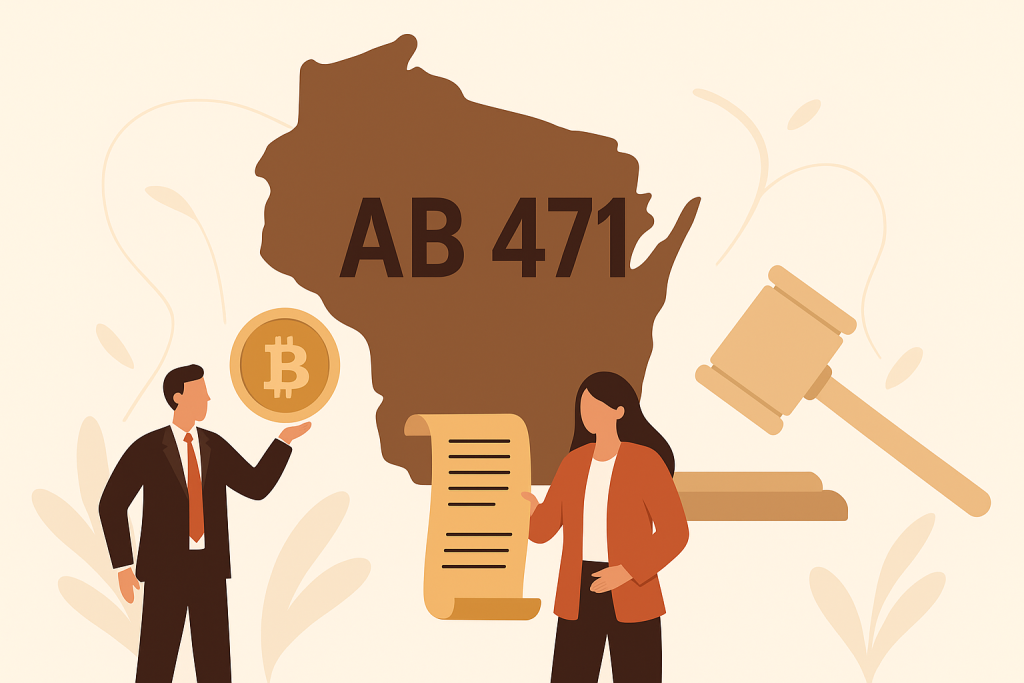A group of legislators in Wisconsin has introduced AB 471, a bill designed to protect residents’ rights to use blockchain while reducing licensing requirements for crypto-related businesses.
The proposal, backed by eight state representatives — most of them Republicans — seeks to update Wisconsin’s regulatory framework by adding several new provisions.
Key Points of AB 471
- State authorities would be prohibited from restricting or banning crypto-related activities such as payments, storage, blockchain development, trading, mining, and node operations.
- Both individuals and companies would be exempt from obtaining a money transmitter (MIT) license when facilitating crypto-to-crypto transactions, as long as those operations don’t involve conversion into fiat.
- Tax exemptions would apply if an exchange of crypto assets does not result in conversion to fiat currency or a bank deposit.
- Local governments would be barred from altering the regulatory framework set at the state level.
However, the bill clarifies that these exemptions do not cover every activity. For example, offering services that convert cryptocurrencies into fiat would still require a valid MIT license.
According to Bitcoin Laws, AB 471 must pass through two committees and both chambers of the Wisconsin legislature before it can be signed into law.
This legislative effort reflects a broader U.S. trend toward deregulating the crypto industry, aligning with the policy direction of President Donald Trump’s administration.


